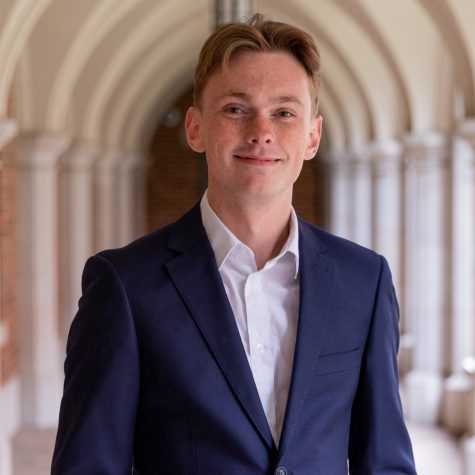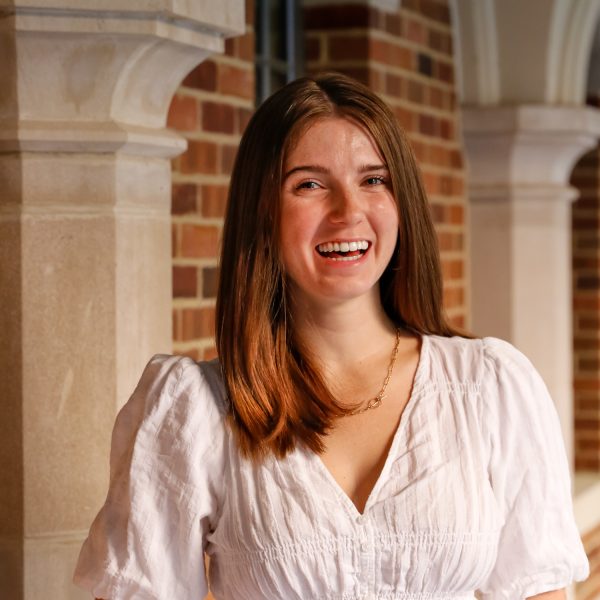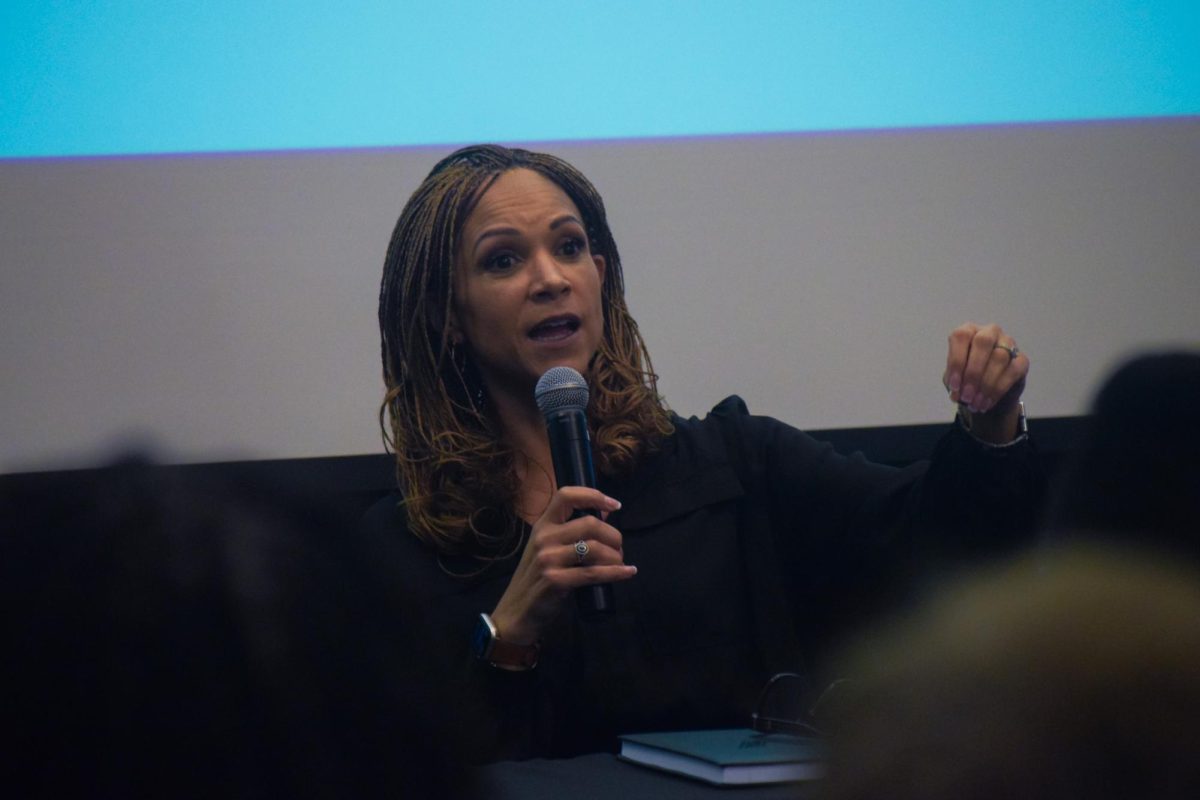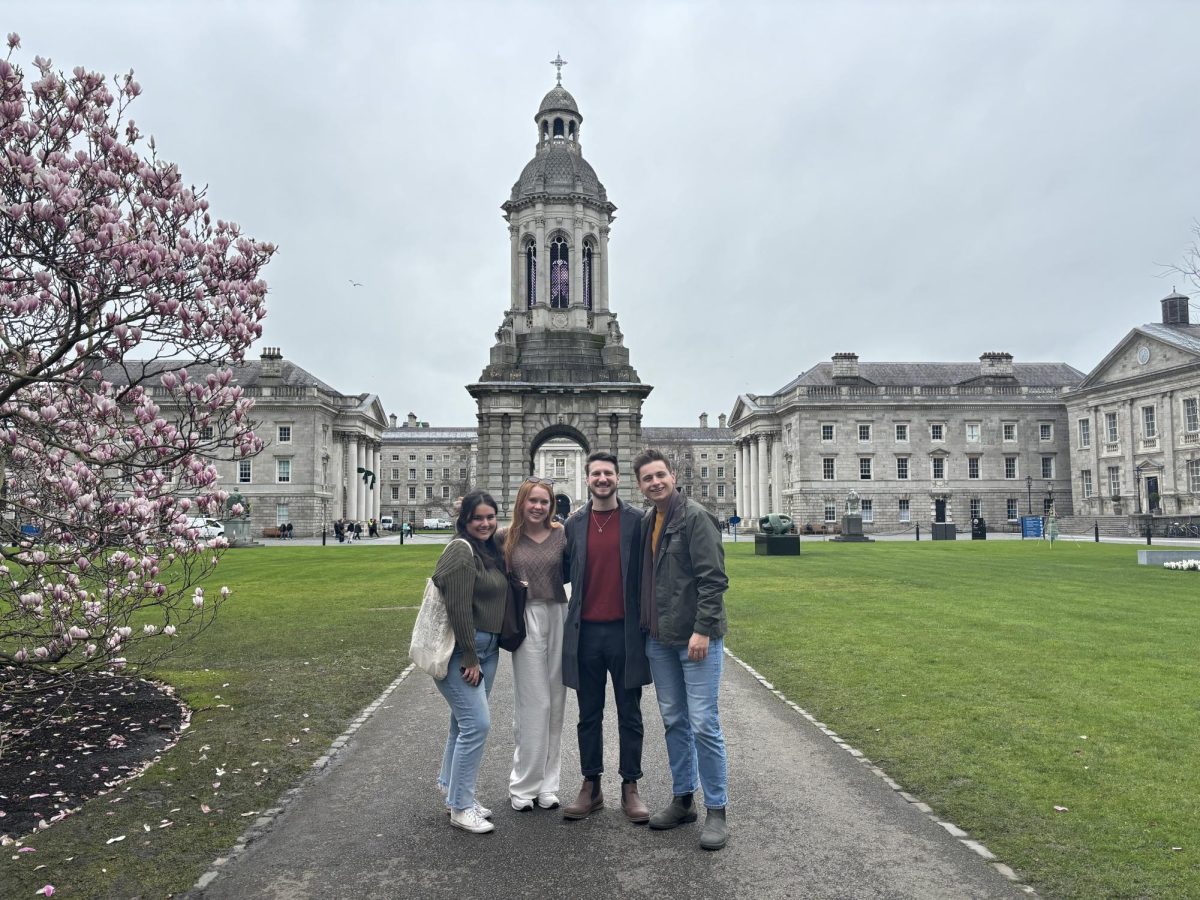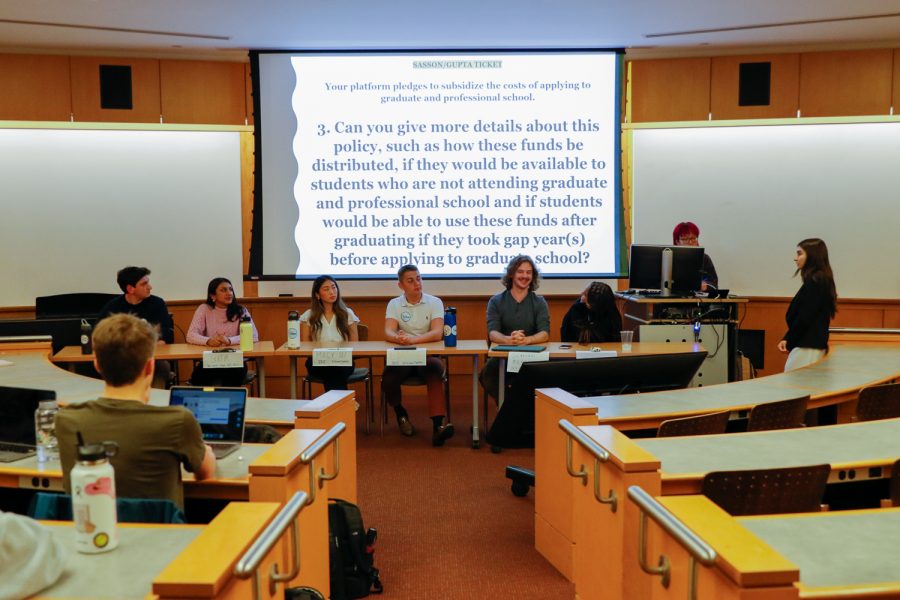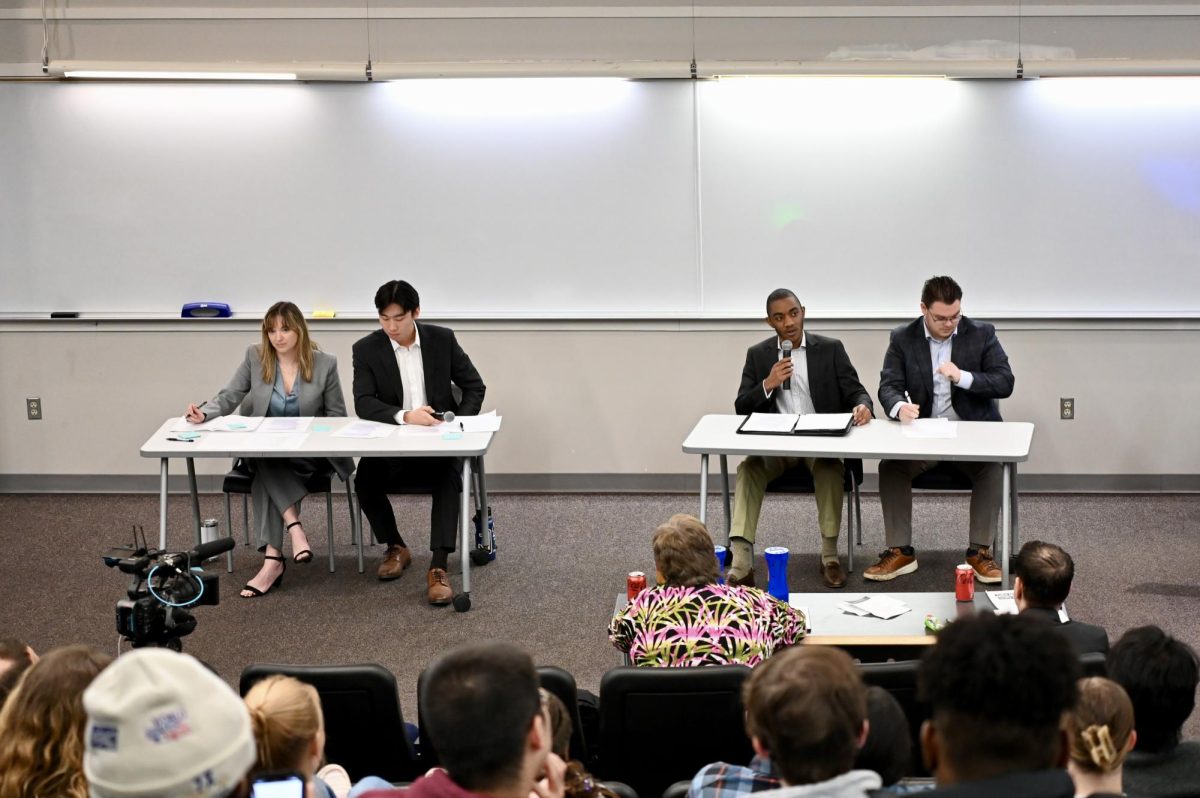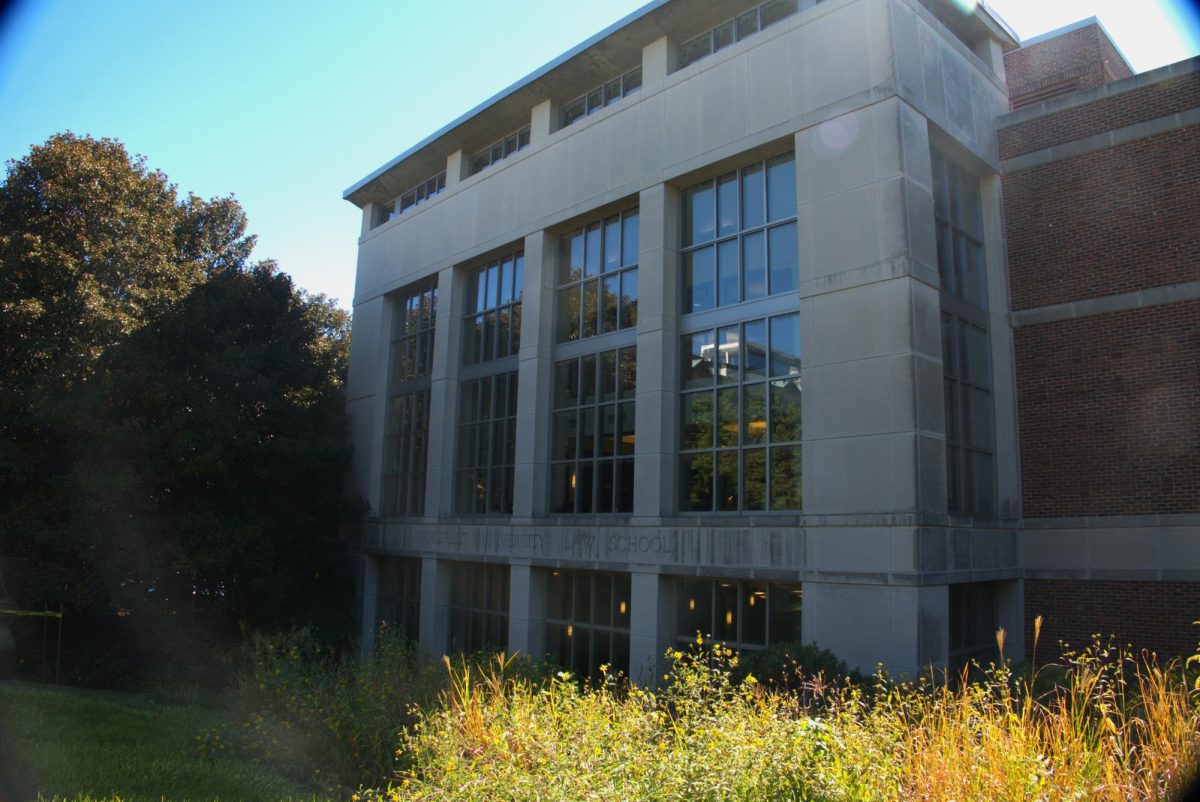CORRECTION: This story was updated on Jan. 31, 2023, at 11:15 a.m. CDT to refer to the correct date of the last debate co-hosted by Vanderbilt College Republicans and Vanderbilt College Democrats.
Vanderbilt College Republicans hosted a debate on Jan. 24 discussing the pros and cons of affirmative action in college admissions. The event was not co-hosted by Vanderbilt College Democrats, unlike similar debates between the organizations in the past.
VCR President Shane Mumma, a senior, said VCD did not respond to recent requests by VCR to host further debates. VCD President Claire Reber said that VCD made the decision not to co-host this debate due to hostilities during the last debate co-hosted by the two organizations in October 2021.
“Due to the hostile nature of the last debate we hosted between both student organizations, there is no interest among the members of our executive board to participate in this kind of event,” VCD President Claire Reber said in a Jan. 24 message to the Hustler.
Mumma said that a prior debate hosted by United Campuses for a Divided Nation in February 2022 was “productive” and “civil”.
“[The debate] went incredibly well, and was very well documented as being civil, productive and fun for all sides,” Mumma said.
Vanderbilt Student Government Vice President Ari Sasson, a junior, moderated the affirmative action debate. Over 60 students attended the event, which featured panelists invited by VCR. Senior Pierce Bivens, junior Alec Boulton and junior Sebastian Fields argued in favor of affirmative action opposite freshman Noah Jenkins, sophomore and VCR Vice President Alex Diefenbach and sophomore Skyler Shipp. Of the panelists, Bivens is the only active Vanderbilt College Democrats member. Jenkins and Diefenbach are VCR members — with Jenkins serving as the club’s secretary, while Shipp is not a member of either organization.
Mumma said VCR chose to debate affirmative action in college admissions in light of former VCR member Harrison Chen (‘22), who works as a research assistant at Consovoy McCarthy, the law firm representing Students for Fair Admissions, an anti-affirmative action group that recently sued Harvard University over its affirmative action policy. Chen published a 2018 editorial in The Hustler rebuking Harvard for its race-conscious undergraduate admissions system.
“Harrison has inspired us all with his passion for this issue,” Mumma said.
The event began with an introduction from Mumma, who emphasized the importance of ensuring freedom of speech and lauded the U.S. government’s continued defense of the First Amendment. He further spoke against those who deny the value of public debates.
“It is of the utmost importance that we have dialogues with those who may not agree with us,” Mumma said. “The Vanderbilt College Republicans will continue to hold debates in perpetuity, as we see no reason to ever be silenced by the few in the woke mob who see no point in having civil discussions with one another.”
Bivens spoke first in support of affirmative action, outlining the effects of systemic racism on minority communities and arguing that race and socioeconomic status should be included as contextual factors in college applications.
“The idea that Black and Hispanic Americans are equal and treated equally rests on the assumption that de jure equality, which itself did not exist until 1979, with a series of amendments to the Civil Rights Act, translated immediately into de facto equality. Of course, this is not the case,” Bivens said.
Jenkins responded by arguing that affirmative action could leave deserving students at a disadvantage in the admissions process. He added that affirmative action can hurt minorities at elite institutions by facilitating “mismatch,” in which students could be placed at institutions where they are not prepared to succeed.
“A majority of African American students end up in the lower quarter of their class. On top of this, these lower grades sap the academic self-confidence of these students at elite schools,” Jenkins said. “I think that’s quite tragic.”
The Hustler could not independently confirm Jenkins’s claim. Jenkins added that race, along with other aspects of a student’s personal background, should be accounted for in a supplemental essay, eliminating the need for affirmative action. Boulton responded that Jenkins’s proposal is a form of affirmative action. They added that white students tend to score higher on exams due to the legacies of segregation and redlining.
“Sure, we’re post-segregation,” Boulton said. “But in the 1970s, we didn’t shuffle the American population around everywhere. We kept the same country.”
Boulton added that affirmative action provides context to the objective measures of a student’s application, while the opponents of affirmative action countered that consideration of race in a way that explicitly benefits one race over another is unnecessary.
Shipp further argued that affirmative action violates Title VI of the Civil Rights Act, which outlaws racial discrimination in programs funded by the federal government. Whether or not affirmative action violates Title VI is currently being debated in the U.S. Supreme Court as part of the Students for Fair Admissions vs. Harvard University case.
Throughout the debate, members of the crowd cheered the panelists on, at times interrupting speeches to express their sentiments. The event concluded with an untimed, open-ended Q&A, during which one audience member pointed out the panelists’ minimal discussion of gender’s impact on college admissions. Fields responded by pointing out that all six panelists were men, a disparity he thought should be rectified in the future.
Attendees expressed mixed reactions to the debate.
“Both sides really brought their A-game and did some great research,” first-year George Destino said. “I agreed with parts of one side and parts of the other, and came to the conclusion that … we should look at [admissions] from a more economic standpoint.”
Junior Amaris Joubert described the debate as “really interesting.”
“Something that I thought was really significant was the argument about mismatch,” Joubert said. “How can you prove that the reason students fail or leave their classes is specifically because of mismatch due to race? … A lot of times, people give these vague details about these studies, but they don’t give the important information that gives a holistic image.”
A university representative said in a message to The Hustler that Vanderbilt’s Affirmative Action Program, which is updated annually, is used for hiring decisions and does not apply to undergraduate admissions. Vanderbilt joined 15 universities in signing a 2018 amicus curia brief backing Harvard in its legal battle with Students for Fair Admissions.
“At Vanderbilt, we strongly believe a diverse student body facilitates learning, growth, and dialogue,” a university representative said. “We have long employed a holistic admissions process that looks at each individual applicant to assess what skills, perspectives, backgrounds, and educational experiences they would bring to the university community.”













